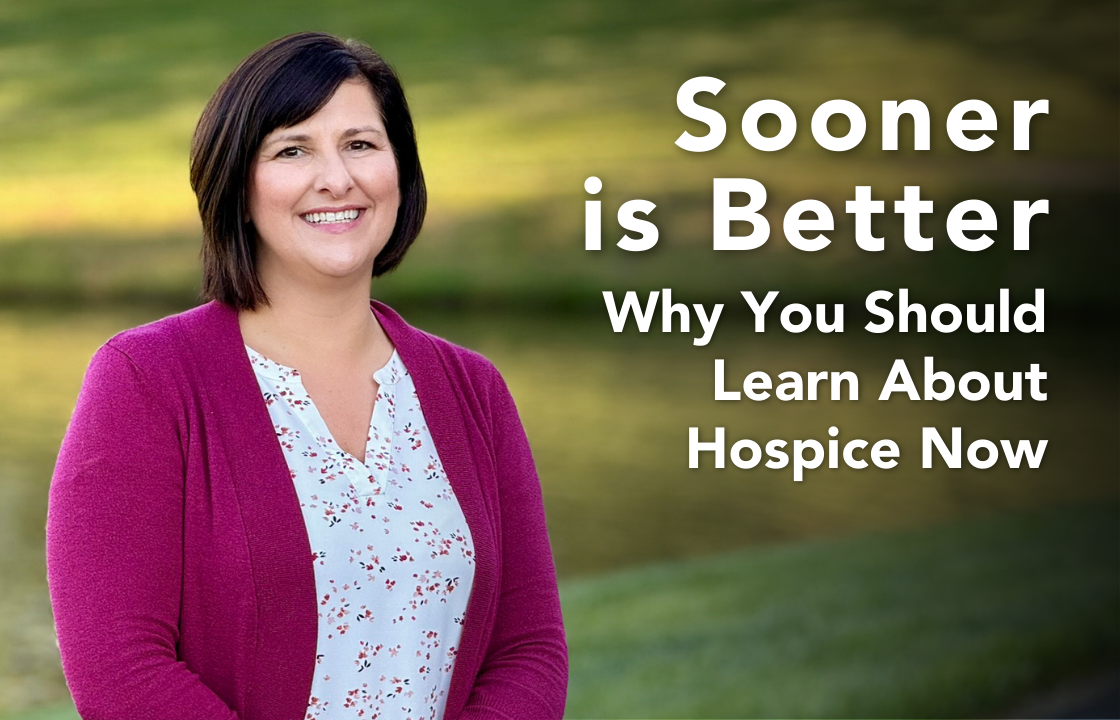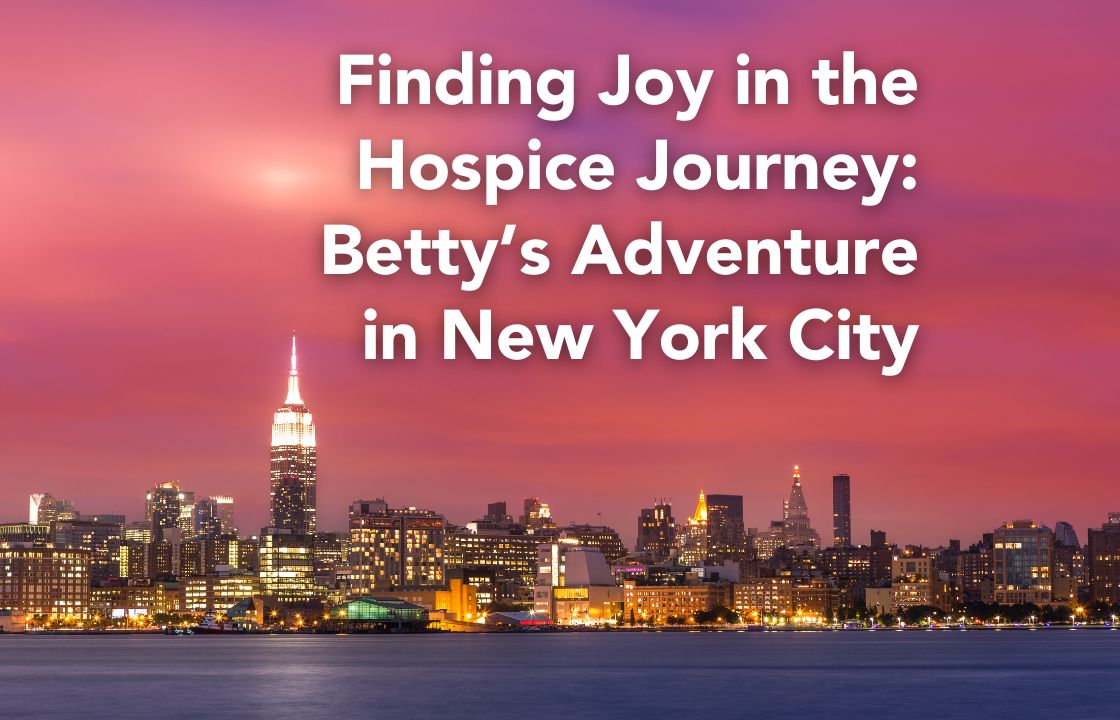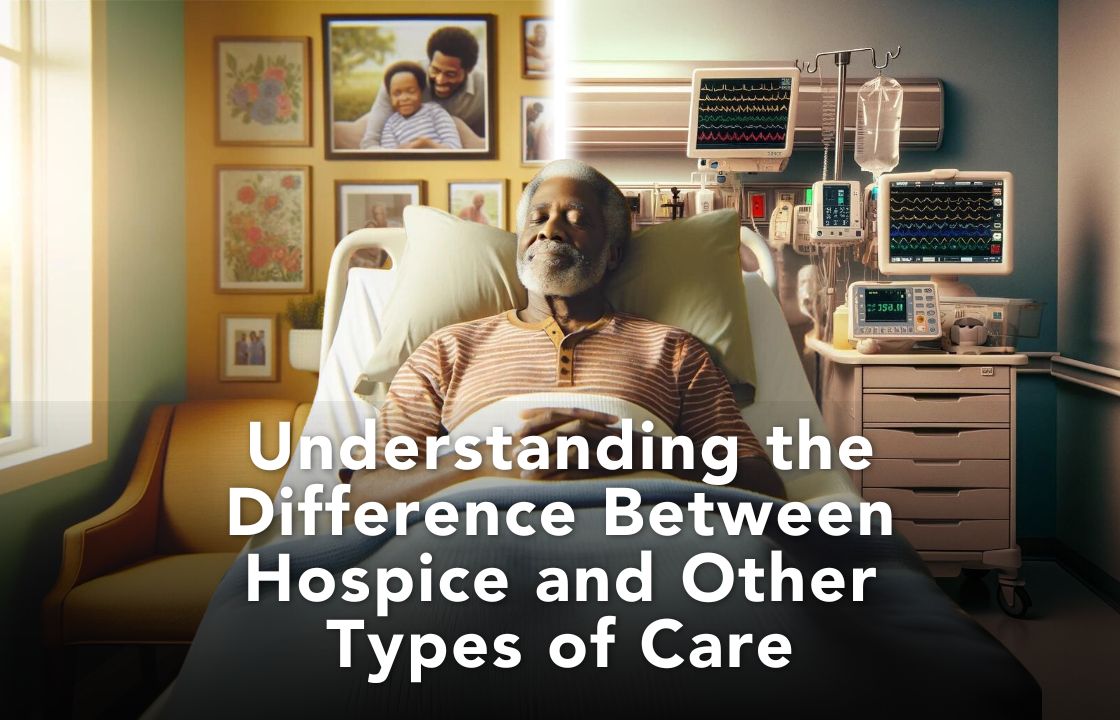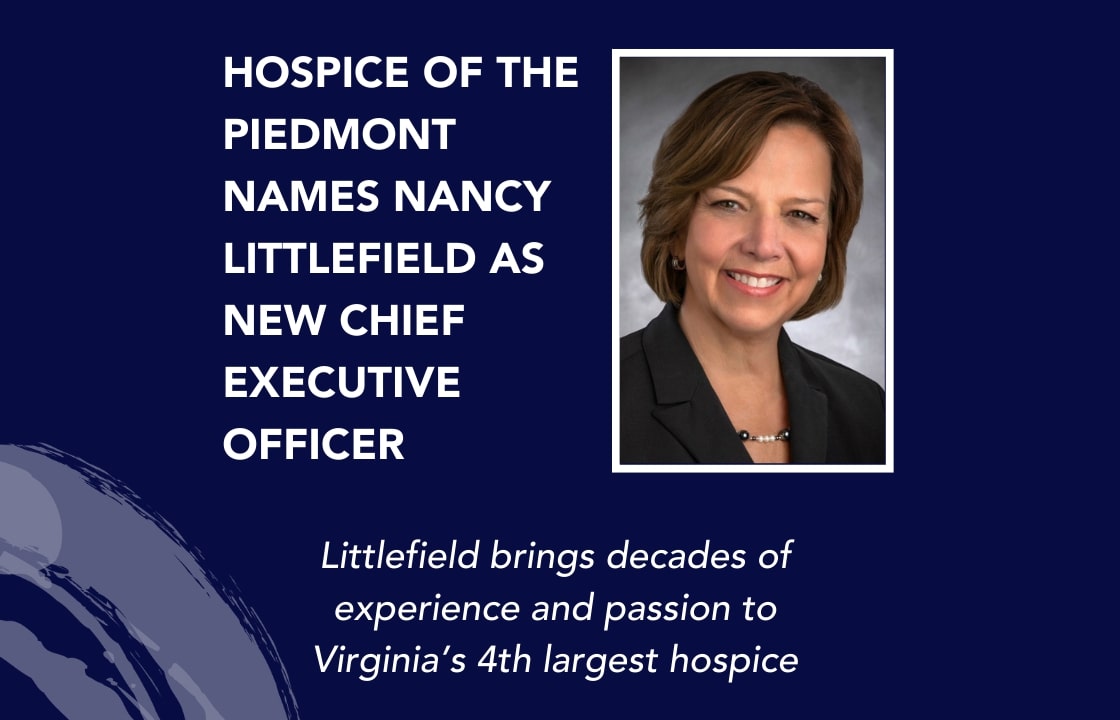At Hospice of the Piedmont, we love hearing from our community. Some of our favorite messages come from people who are proactively thinking about hospice, even when they are not yet in need of our services.
Here are just a few examples of the inquiries we receive:
- “I am writing to establish contact with hospice. Although we are not at a point where we need hospice services yet, I have some questions about how hospice would work.”
- “I have cancer with an unknown life expectancy – but the doctor says to make preparations. I’d like to learn how the hospice process is initiated and how different services are offered.”
- “I would like to talk with someone about making a plan. Not for now, but when the time comes.”
These requests reflect a growing awareness of the value of early engagement with hospice services. To better understand these benefits, we sat down with Abby Denby, Hospice of the Piedmont’s Chief Clinical Officer. Abby has been a registered nurse since 2001 and holds a Doctorate of Nursing Practice Degree from James Madison University.
Think of it as a “Pre-Hospice” Consultation
All too often, the decision to enroll in hospice comes at the last minute. “It’s really hard to make decisions like that when you’re in crisis mode,” says Abby.
You’ll often hear us talking about getting to know us before you need us. While it’s true that we want everyone in the community to be familiar with hospice, Abby distinguishes between that general awareness and “getting to know us as soon as you understand that you could need us.”
For example, if you or a loved one receives a diagnosis that will be terminal eventually – even if you’ve been given years to live – it’s worth calling us for a “Pre-Hospice” consultation.
Some common life-limiting diagnoses where you may be facing a longer journey include Alzheimer’s, COPD, Congestive heart failure, chronic kidney disease, and some forms of advanced cancer. You might not be hospice-eligible when you receive this diagnosis, but hospice is likely to be a part of your future care.
This is also an excellent time to consider creating an Advance Medical Directive. In instances where you cannot speak for yourself, having a conversation with a trusted decision-maker and recording your wishes can ensure your care preferences are respected.
“Let us help you navigate through what your disease progression might look like. Based on your goals, we can help you determine the right time to enroll,” says Abby. “Because if you wait until you start having more symptoms, you could be working in that crisis mode.”
Seeking Goldilocks: Enrolling at a Time that is Just “Right”
According to a study published in the Journal of the American Geriatrics Society, families reported the most benefits from hospice with enrollments of at least three months. Yet the National Hospice and Palliative Care Organization (NHPCO) reports that the median length of stay for hospice patients in 2021 was only 17 days, far shorter than that ideal.
This gap, three months vs. 17 days, reflects a lack of pre-planning that limits the benefits patients and families receive from the hospice experience. To better understand this timing issue, several studies have asked caregivers whether they thought their loved one enrolled in hospice:
- “Too Late,”
- “At the Right Time,” or
- “Too Early.”
These surveys, generally conducted with family members retrospectively after their loved one has died, find that between 8% and 17% of families say their loved one enrolled “Too Late.”
And somewhat worryingly, a study published in Home Health Care Management & Practice, which surveyed hospice patients themselves, found that about one-third said it would have been “easier” if they had started hospice earlier.
From the practitioner’s perspective, “It’s disheartening not to have the opportunity to help somebody through more of their journey,” says Abby. “It’s a difficult time. And if we could engage sooner, we could have provided more symptom management and improved their quality of life.”
But What If I Call Too Early?
When asked what she’d say to someone afraid they might call us “Too Early,” Abby is genuinely puzzled.
“It’s never too soon to call,” she explains. “If someone calls and is not eligible, that’s alright. We won’t put you on our service if you’re not ready. We’re going to help you determine when it will be the right time in your journey.”
As a side note, in the studies that ask families the goldilocks question about their enrollment timing, only about 2% of caregivers say their loved one enrolled “Too Early.” So, if you’re afraid you’re calling too soon, statistically speaking, that’s unlikely.
Big Picture: Early Engagement Enhances Quality of Life
Research consistently shows that patients and families experience greater benefits when hospice care begins earlier. Longer stays allow hospice teams to provide more comprehensive care, manage symptoms effectively, and offer emotional and spiritual support tailored to patients’ needs.
Here are just a few examples:
- The Journal of the American Geriatrics Society study found that longer hospice stays were associated with higher helpfulness ratings and more services received.
- A study in the American Journal of Hospice and Palliative Care highlighted that families of patients with longer hospice stays reported higher satisfaction levels.
“There’s a real benefit to building the caregiver-patient relationship. Giving our interdisciplinary team the time to really get to know you allows us to make the journey as meaningful as possible,” says Abby.
After all, Hospice is a comprehensive benefit that includes medical, emotional, and spiritual support from a team of doctors, nurses, home health aides, social workers, chaplains, and volunteers, as well as medications, supplies, and equipment. It stands to reason that the longer someone receives hospice care, the more benefits they’ll receive.
Helping Patients Feel Better
One of the main benefits of hospice care is the management of pain and other symptoms. The more time your hospice care team has to work with you on your symptoms, the more effective treatment you can receive.
A study in The American Journal of Medicine found that physical and psychological symptoms tend to worsen progressively and peak around the time of hospice admission. However, after starting hospice care, the prevalence of symptoms like depression, anxiety, and fatigue often decreased significantly, sometimes reaching levels comparable to or lower than those observed 12 months before hospice enrollment.
Imagine that? Hospice is literally making people feel better as they are dying.
Similarly, if you’re looking for additional motivation not to wait until the last minute, a study in the Journal of Pain and Symptom Management found that more family members who felt the referral was ‘‘too late’’ reported a higher incidence of unmet needs for managing pain, shortness of breath, and emotional support.
Abby explains the challenge of hospice enrollments that are days and weeks, not months. “If it’s too short, we’re still going to help you die peacefully,” she says. “But we’re not going to have as much of an opportunity to help you live fully until you die.”
Helping Families Feel Better Too
In hospice care, we often say that we’re not just there to take care of the patient; we’re also taking care of the family.
“I think getting the family on the same page and making sure they can work through their concerns is a major benefit of enrolling early. We can also help them understand where their loved one is in their journey and what to expect,” says Abby. “It’s about making every moment count and helping families embrace the needs of their loved ones.”
Beyond this emotional support, hospice also offers practical benefits for families. Many people, despite their love and good intentions, have little experience in caring for someone at the end of life. Hospice provides crucial guidance and resources in this area.
A study in the Journal of Pain and Symptom Management found family members of those referred “Too Late” vs. those referred “At the Right Time” reported lower confidence in helping with patient care at home and a poorer understanding of what to expect at the time of death.
“Family members often feel helpless and like they’re losing control. Hospice provides them with the resources they need to feel more helpful, supportive, and in control of the whole process,” says Abby. For example, “If somebody is short of breath and you don’t have the tools or the resources to support them through that, that’s going to be really challenging as a family member, and you’re going to feel helpless.” A hospice nurse can train you on what to do in that situation.
Additionally, the benefits of an earlier hospice enrollment can pay dividends for family members even after their loved one dies. A study in the American Journal of Psychiatry found that longer hospice enrollment can lower depression levels among surviving caregivers.
Taking the First Step
At Hospice of the Piedmont, we want families to get to know us before they need us. Making that first call doesn’t mean you are giving up hope; it means you are taking a proactive step to ensure the best possible quality of life for yourself or your loved one. By reaching out to hospice sooner rather than later, you can access a wealth of support, care, and resources designed to help you through every stage of this journey.
For more information or to start the conversation, please get in touch with us at 434-817-6900 or (540) 825-4840 or fill out this short form.



